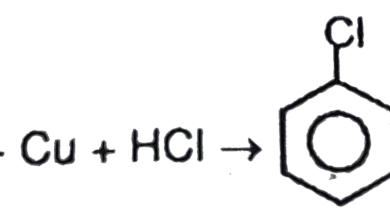An In-Depth Guide to Jurkat Cells: Applications in Immunology Research

Cell lines are crucial in immunology and biomedical research, shedding light on complex biological processes. Jurkat cells, sourced from a human T-cell leukemia patient, are pivotal in this field, acting as a fundamental tool in T-cell biology. Cytion provides high-quality cell lines, including Jurkat Cells, widely utilized in research.
What You Need to Know
- Origin: Human T-cell leukemia
- Established: 1977
- Key Applications: T-cell signaling, apoptosis, HIV research
What Are Jurkat Cells?
Jurkat cells are immortalized cell lines derived from a 14-year-old boy diagnosed with T-cell leukemia in 1977. With roots in human T-cell leukemia, these cells have become a cornerstone in immunology research. They express T-cell receptors, can undergo apoptosis, and produce cytokines, making them an ideal model for studying T-cell signaling and functionality. Their growth characteristics allow researchers to manipulate and investigate these cells in vitro, illuminating cellular mechanisms that underlie immune responses.
Research applications for Jurkat cells are vast, enabling scientists to explore critical areas such as T-cell signaling, apoptosis mechanisms, and cytokine production. They have played a significant role in HIV research, helping to elucidate the mechanisms of HIV infection and latency. This unique cell line serves not only as a powerful model system for understanding immune responses but also provides a platform for developing therapeutic interventions. By leveraging Jurkat cells, researchers can explore the multifaceted world of T-cell biology.
Importance of Jurkat Cells in Immunology Research
Jurkat cells offer essential insights into T-cell receptor (TCR) signaling pathways, which are vital for T-cell activation and immune response. By examining these pathways, scientists can assess how immune cells respond to different stimuli, ultimately enhancing the understanding of autoimmune diseases and cancer therapies. For instance, groundbreaking studies have utilized Jurkat cells to evaluate the effectiveness of new drugs aimed at modifying T-cell activity in various health conditions.
Additionally, Jurkat cells enable the examination of gene expression related to immune responses. By analyzing how these cells react to different cytokines and growth factors, researchers can identify key molecular players involved in T-cell activation. This knowledge enriches our understanding of the immune system and lays the groundwork for developing targeted therapies for immune-related diseases. Insights gained from studies involving Jurkat cells often lead to innovative approaches in immunotherapy.
Research Impact of Jurkat Cells
TCR Signaling
Cytokine Production
HIV Research
Comparing Jurkat Cells and HeLa Cells
HeLa cells, another prominent cell line, originated from cervical cancer cells taken from Henrietta Lacks in 1951. They have been extensively used in oncology and virology research, showcasing their versatility. While both Jurkat and HeLa cells are invaluable to scientific research, their origins and applications differ significantly. Jurkat cells primarily focus on T-cell biology, while HeLa cells are often used to study cancer and viral infections. This distinction highlights the specialized roles that each cell line plays in advancing our understanding of different biological processes.
In situations where both cell lines are utilized together, researchers can gain a comprehensive understanding of cancer biology and the immune response. For example, studies assessing interactions between cancer cells and T-cells often employ both Jurkat and HeLa cells to explore how T-cell responses can be harnessed to combat cancer. This complementary approach enhances the depth of research findings across various biomedical fields, providing a holistic view of the interplay between immune cells and tumor biology.
Advantages of Using Jurkat Cells from Cytion
Selecting Jurkat cells from Cytion guarantees researchers receive reliable and authenticated cell lines that meet rigorous quality standards. Cytion’s commitment to quality assurance and customer satisfaction underpins its reputation for excellence in cell line provision. Their Jurkat cells come with unique features, including thorough testing for contaminants. Ensuring researchers can trust the integrity of their experimental data.
Researchers interested in exploring Jurkat cells can find a diverse range of applications tailored to their needs. Cytion’s offerings include detailed product specifications, enabling scientists to make informed decisions for their research. For high-quality Jurkat cells, Cytion’s Jurkat Cells present an excellent option for advancing studies, providing the necessary tools to investigate the complexities of immune responses.
Conclusion
In conclusion, Jurkat cells are vital in advancing immunology research, offering valuable insights into T-cell biology and immune responses. Their versatility and reliability make them essential tools for scientists exploring various aspects of cellular function and disease mechanisms. Researchers are encouraged to visit Cytion for their cell line needs, including both Jurkat-cells and complementary cell lines like HeLa Cells.




